New Monthly Poll Finds Parents’ Most Valued Teacher Traits to be Patience, Experience, and Organization
Children are heading back to school, backpacks packed and first day of school pictures taken. Excitement and curiosity accompany the new school year, but what about any lingering feelings from the year prior? Were there any lessons from last school year that may be on their parents’ mind heading into the new year?
In partnership with Morning Consult, EdChoice surveyed a nationally representative sample of American adults 18 and older (N=2,559) from August 10-13, 2023. With additional sampling, we obtained responses from 1,310 parents of children currently in K-12 education.
We included new questions asking parents what traits they value most in teachers. The survey also explored which values parents want their child’s school to emphasize, as well as when parents consider and decide on school enrollment and plans for the next school year. Access the full report here.
Here are some of the key takeaways:
1. Parents believe the most important traits for their child’s teacher are to be patient, experienced, and organized. Of all the teacher traits listed, parents prioritized patience (81% ), experience (76%), and organization (76%) above the rest. Enthusiasm (75%), creativity (72%), and empathy (70%) followed closely behind. The least important teacher trait, according to parents, was strictness (32%). Additionally, only roughly one-fifth of parents feel it is important for their child’s teacher to be a female (22%) or a male (19%). Interestingly, 68 percent of parents say it is important for their child’s teacher to be a subject expert.
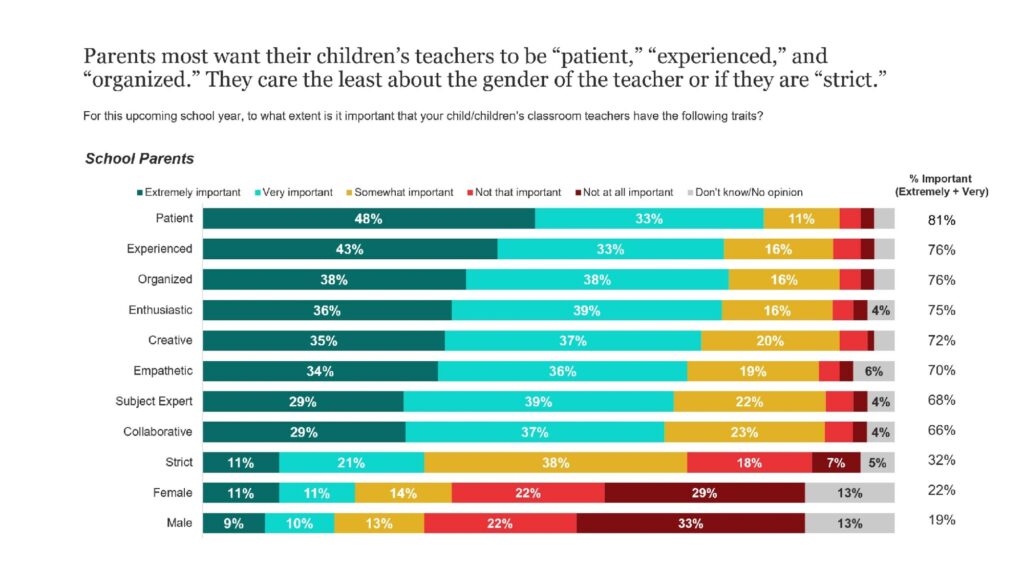
2. Parents want schools to emphasize values like respect and honesty over values such as competition and prudence for students. For the first time, we asked both parents and non-parents which values schools should emphasize for students. The majority of parents feel it is extremely important for schools to prioritize values such as honesty (64%), respect (55%), and responsibility (53%). Comparatively, less than one-third of parents feel it is extremely important for schools to emphasize moderation (29%), prudence (24%), and competition (16%). Non-parents are generally aligned with parents on this subject, though some discrepancy appears when discussing values like perseverance and courage, with parents being 13 and 11 points more likely to feel it is extremely important schools emphasize such values, respectively. Non-parents also feel that the least important values for schools are prudence (18%) and competition (15%).
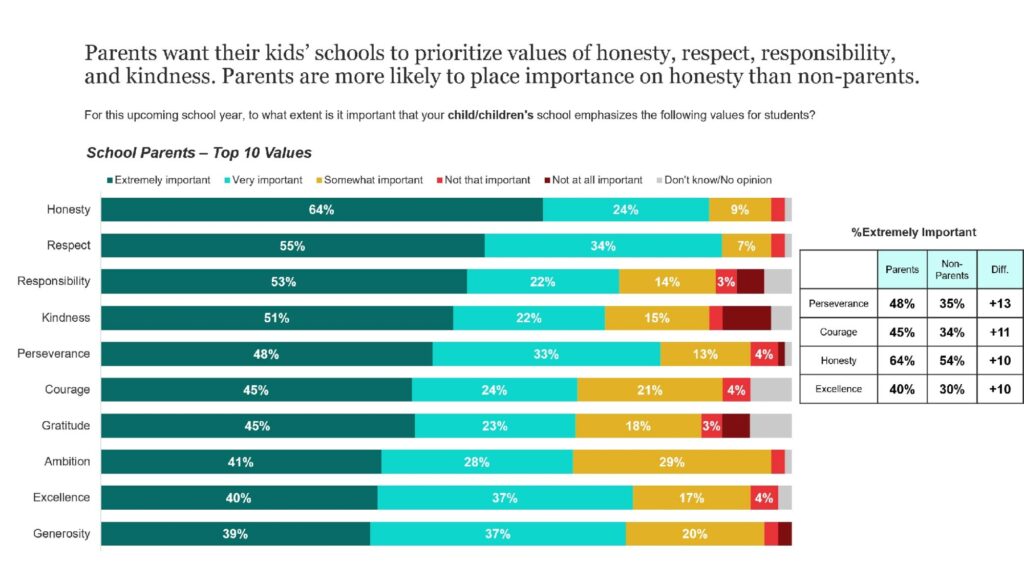
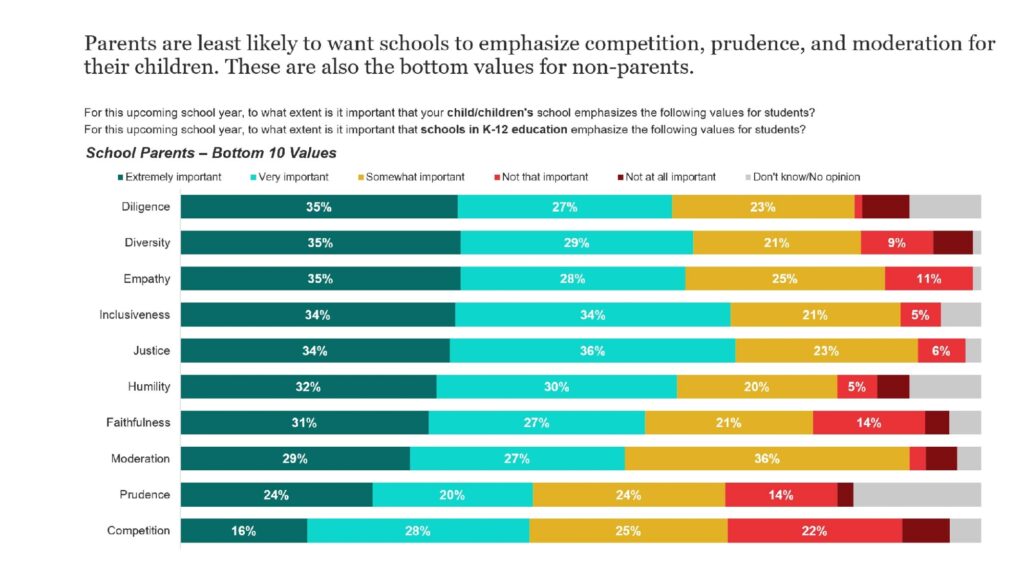
3. More than one-fourth of parents report their child has switched from one school type to another. We asked parents if their child has ever switched school types, besides switching from elementary to middle school or middle to high school. Twenty six percent of parents say their child has switched, up slightly from July. Examining which groups of parents were most likely to say their child switched, private school parents (45%), special education parents (41%) and parents of special needs children (39%) were at the top. Hispanic parents (23%), Black parents (21%), and parents living in rural areas (18%) were the least likely to say their child switched school types. Looking at why these children have switched schools, parents report excessive stress/anxiety (28%), bullying (26%), and academic needs not being met (26%) as most frequently cited difficulties.
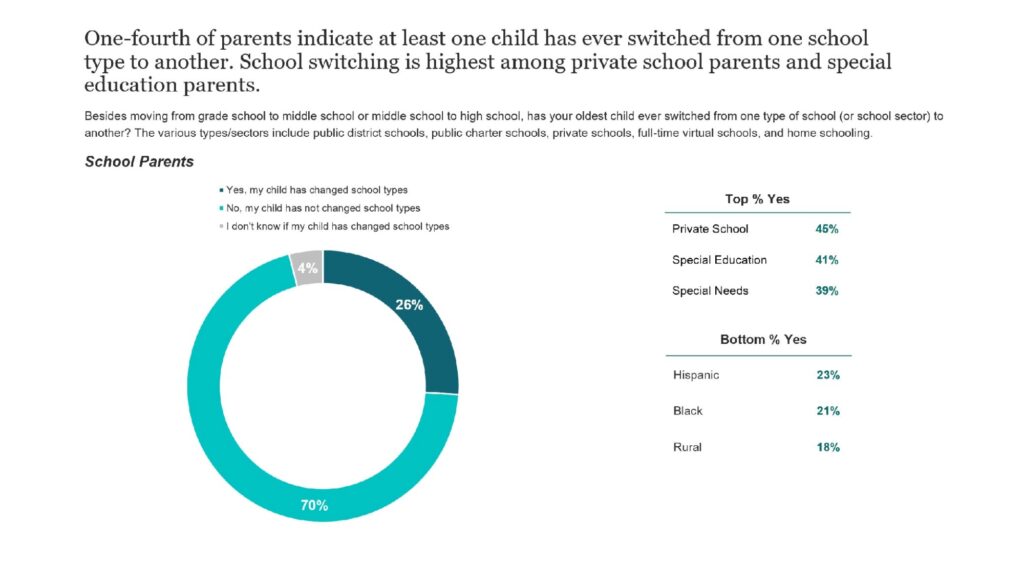
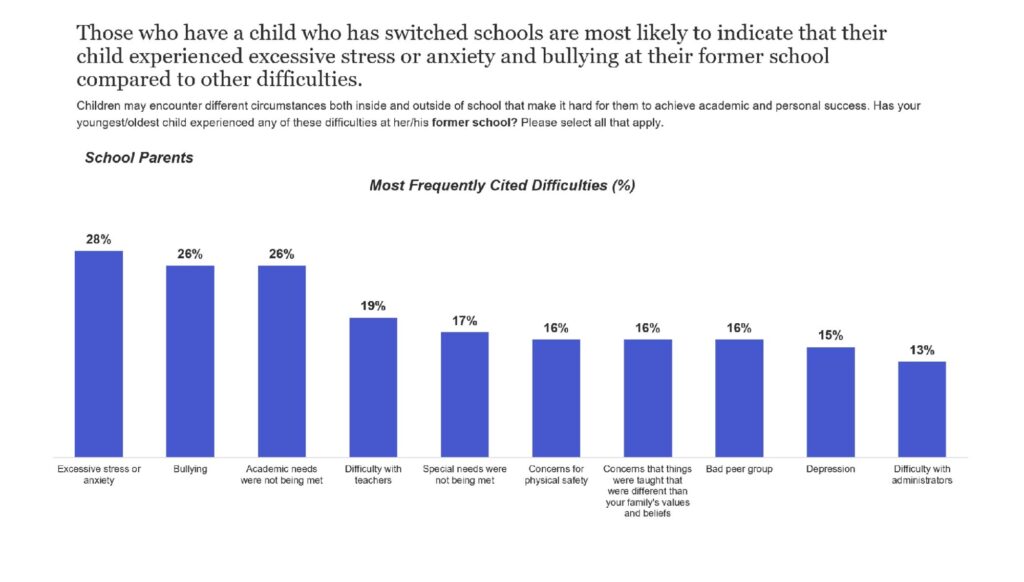
4. Parents are most likely to plan and make decisions about their child’s enrollment in school in July or August. We asked parents the following question: “Generally speaking, in what month do you or your spouse/partner make decisions on/begin considering your child’s/children’s school enrollment for the next school year?” Parents are most likely to begin considering their options for enrolling their child in a school in July (20%) or August (23%). When it comes to actually deciding about their child’s school, parents again preferred July (23%) or August (21%). Months like October, November, December were the least likely months for parents to consider or make decisions about their child’s schooling.
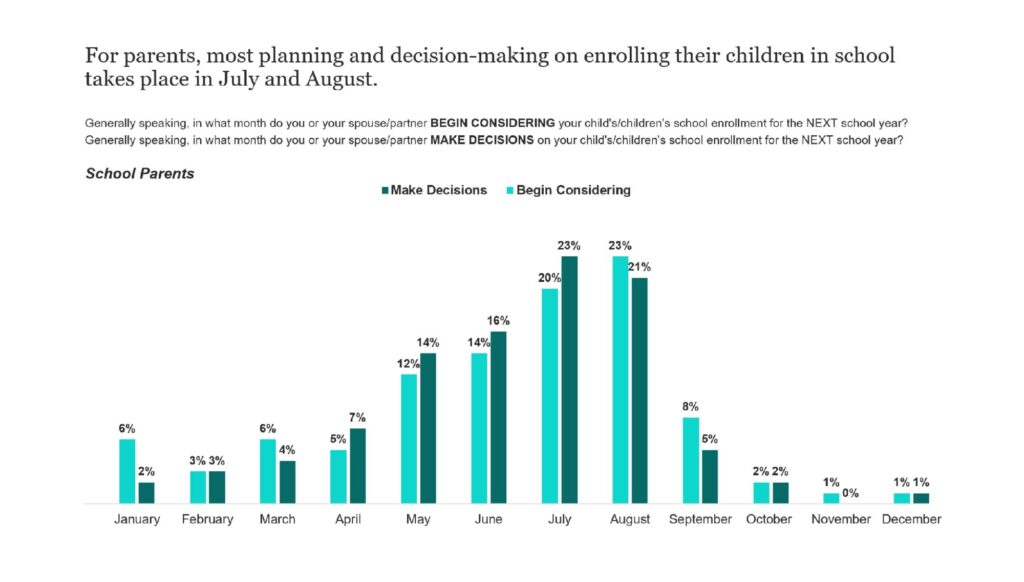
5. More than one-third of parents have used artificial intelligence. Use of AI among parents (38%) remained steady from July. Comparatively, 40 percent of all adults report having used AI. Younger adults, urban respondents, and liberal respondents are the groups most likely to have used the technology. Older adults, rural respondents, and female respondents are the least likely groups to have used AI. Awareness of AI is much higher than actual usage. Roughly four in five adults saying they have heard “a lot” or “some” about AI, up slightly from July.
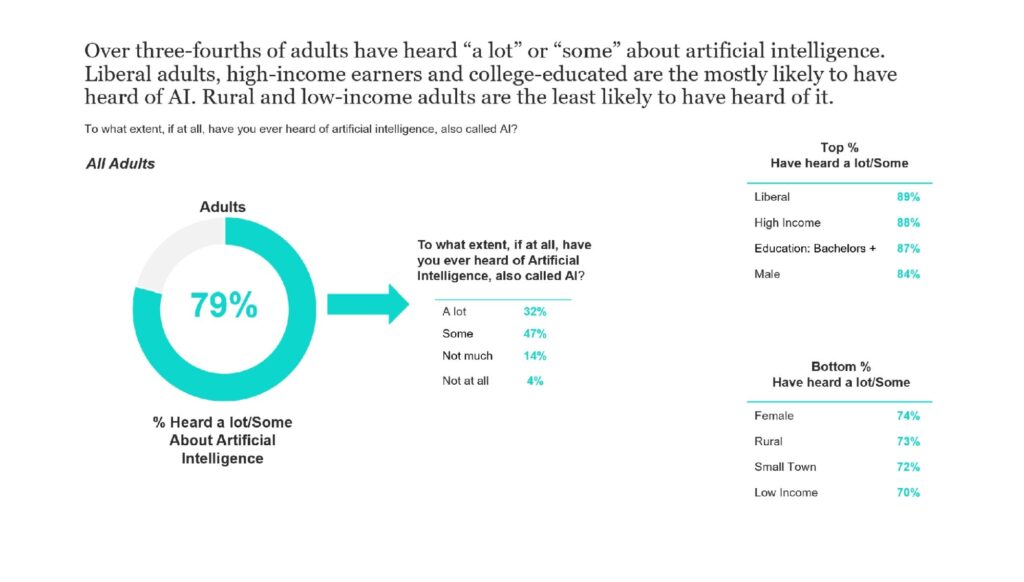
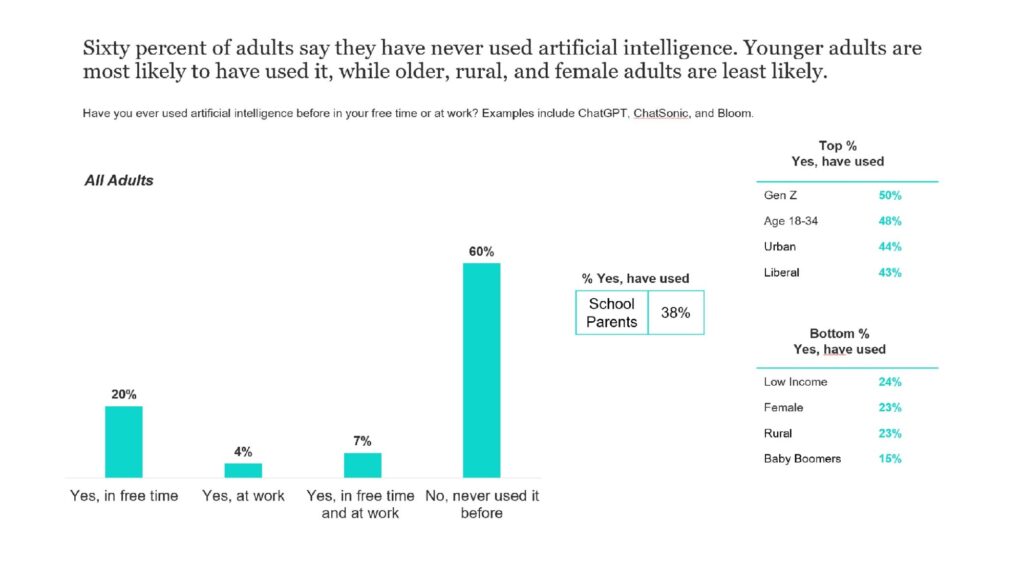
6. Americans’ support for school choice policies remained steady in August. Americans’ support for ESAs (+1 point), vouchers (+3 points), and open enrollment (+2) slightly increased in August. Support for each of the school choice policies from the general public remains above 60 percent, while support from parents remains above 70 percent. For parents, strong support for each of the policies increased across the board in August. Looking at ESAs, less than 10 percent of parents oppose the policy.
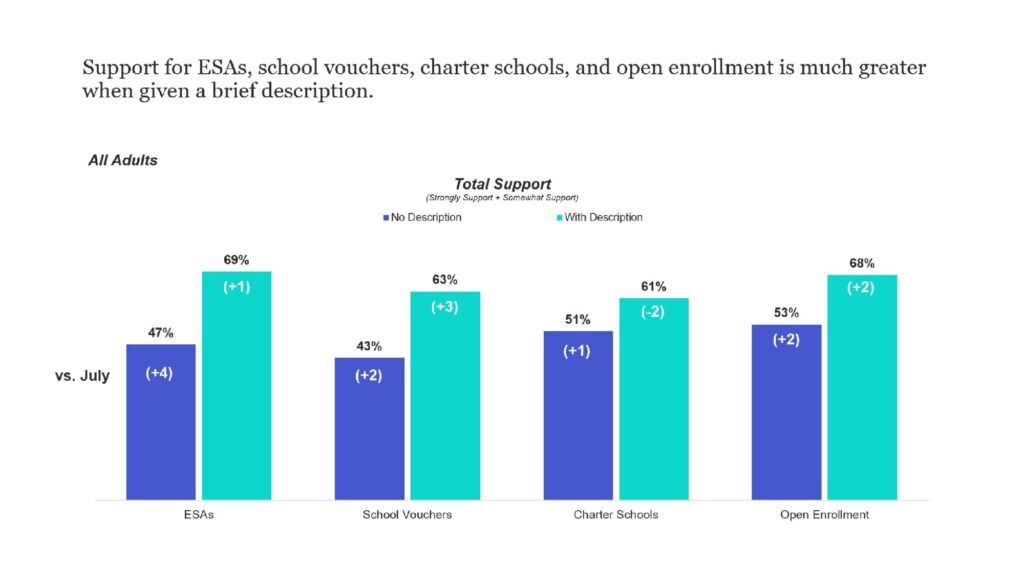
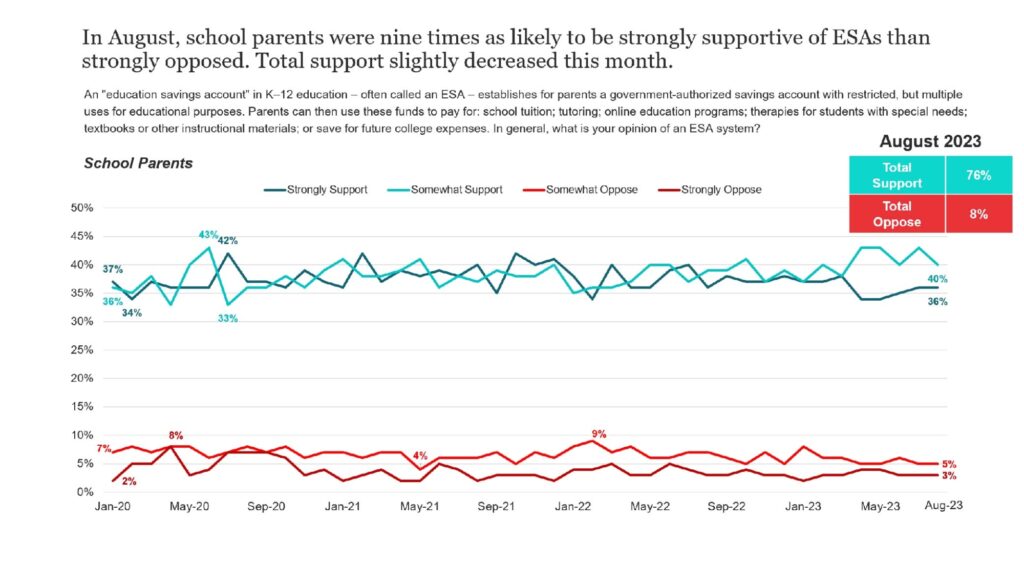
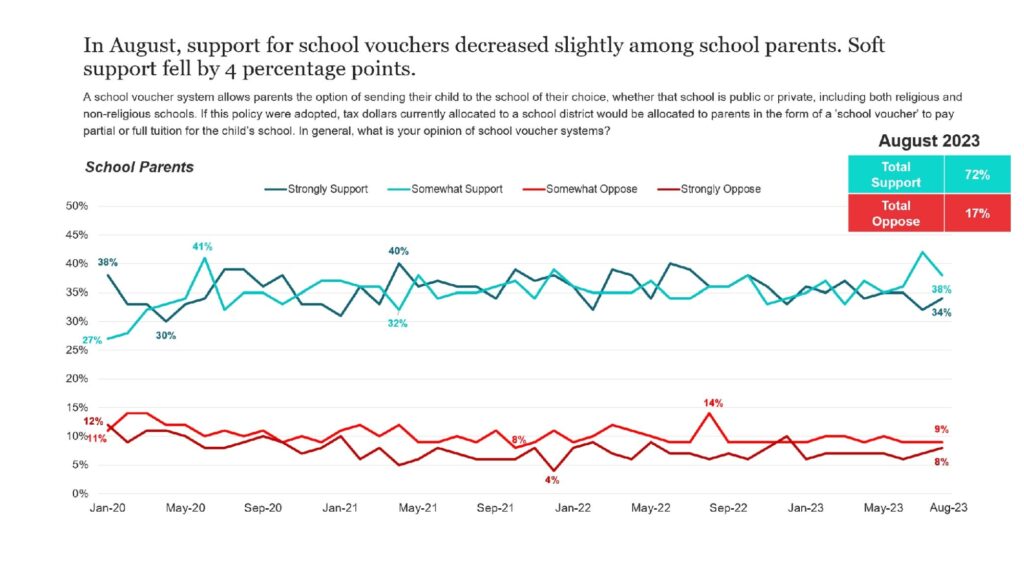
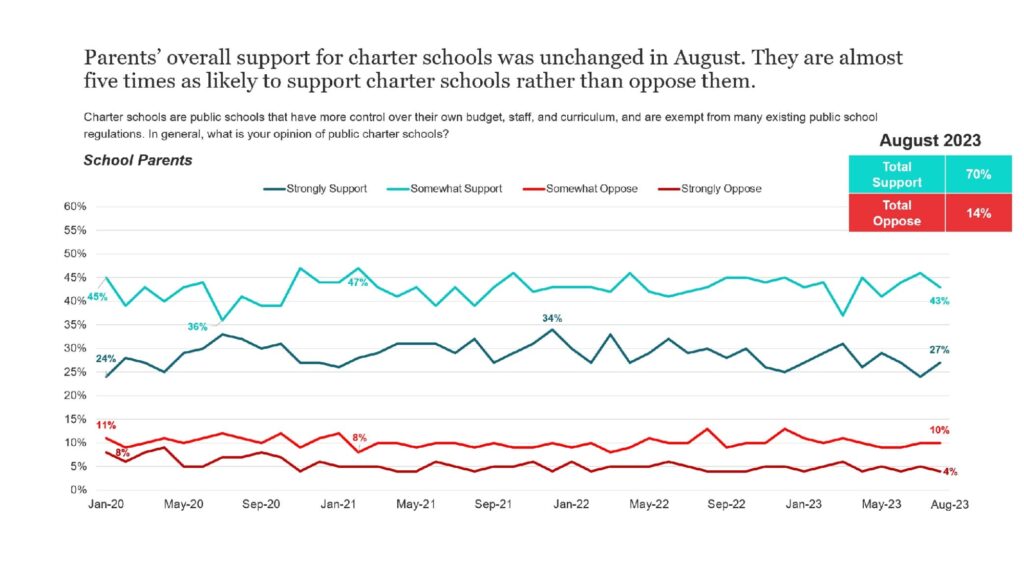
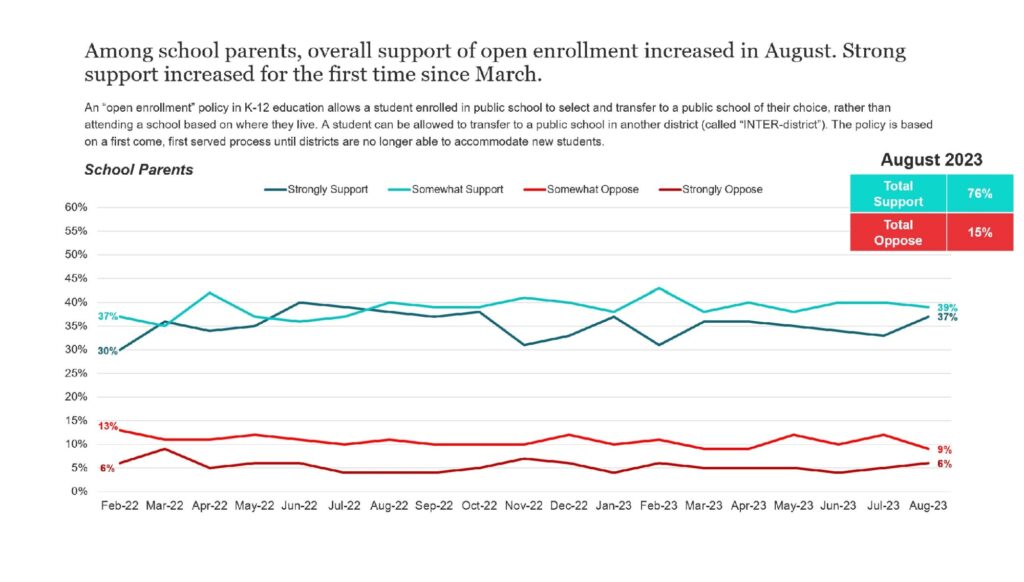
Americans continue to favor universal ESAs over needs-based ESAs. Nearly two-thirds of Americans (65%) agree that ESAs should be available to all families, regardless of income and special needs, up 4 points from July. Comparatively, only 45 percent of Americans said that ESAs should be available to families based on financial need.
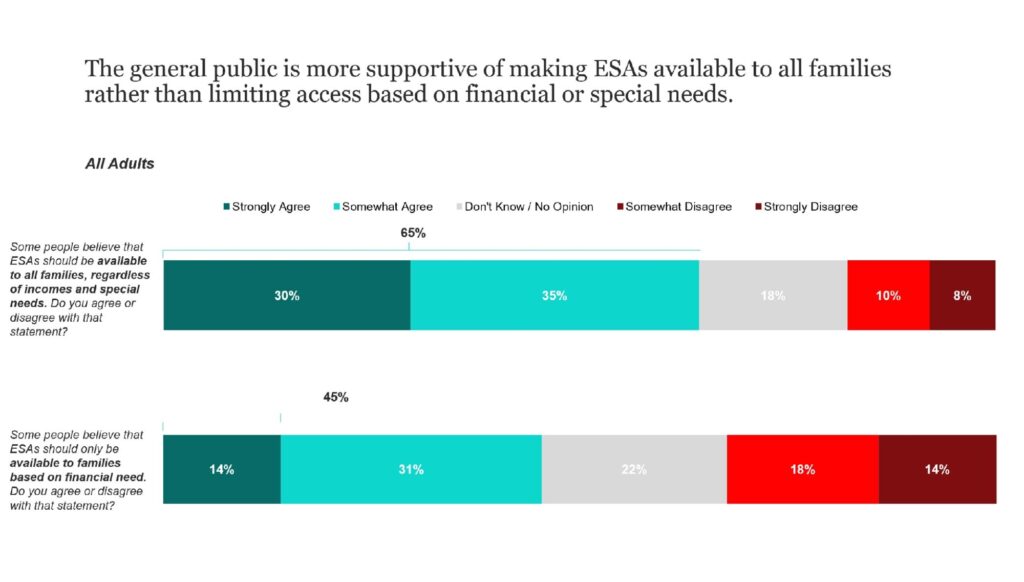
Visit the EdChoice Public Opinion Tracker site to access past reports, crosstabs, and questionnaires. We update our national and state dashboards every month. We also provide a more in-depth description of our research and survey methods.
Our K–12 education polls archive is updated on a rolling basis, roughly a few times each month. Please don’t hesitate to let us know if we are missing any surveys, or if there are accidental errors.




